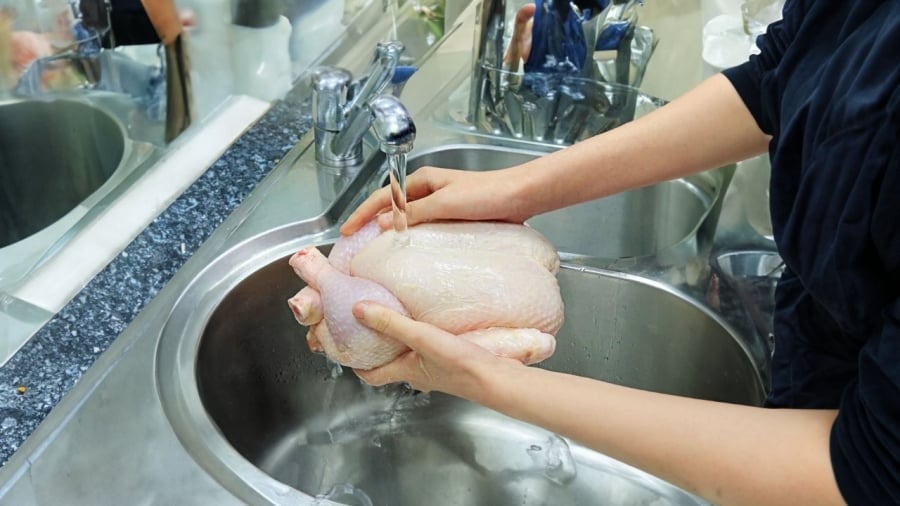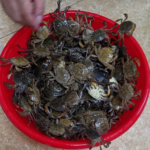Washing raw chicken before cooking is a common practice among homemakers to remove dirt and grime. However, this seemingly harmless act can have adverse effects on your health. Taiwan’s Food and Drug Administration (FDA) has recently issued a warning against washing raw chicken, stating that it can increase the risk of Salmonella infection.
According to the FDA, raw chicken often carries Salmonella bacteria, which can cause acute gastrointestinal symptoms such as diarrhea, fever, severe abdominal pain, and even dehydration if left untreated.
What’s concerning is that when you rinse raw chicken under the faucet, the water can splatter, spreading bacteria to other surfaces, foods, or utensils, thereby increasing the risk of contamination. So, this “cleaning” process can actually have the opposite of the intended effect.
This issue has sparked debates on social media platforms. A user shared in a group called “Family Meals”: “I feel like it’s not clean if I don’t wash it. But then I worry about bacterial infections. I really don’t know which way is right.”

Here are some diverse opinions from other netizens:
“Touching raw meat and then handling knives or opening the fridge is riskier. The key is to wash your hands thoroughly after handling raw meat.”
“Rinsing only removes dirt; the bacteria remain. Tap water and the air can sometimes contain more bacteria.”
“I don’t wash it, but I always make sure to cook it thoroughly to ensure safety.”
“I usually blanch it in boiling water, rinse it, and then cook it.”
“Soaking it in a basin of water instead of rinsing under the tap prevents water splatter.”
Emphasizing the potential health risks, the FDA stresses that the best way to eliminate bacteria from chicken is to cook it thoroughly. They advise against washing raw chicken before cooking to ensure the safety of you and your family.
Consumers are encouraged to follow food safety guidelines when handling raw meat, including separating raw and cooked foods, thoroughly washing hands after handling raw meat, and cooking meat thoroughly before consumption.





































